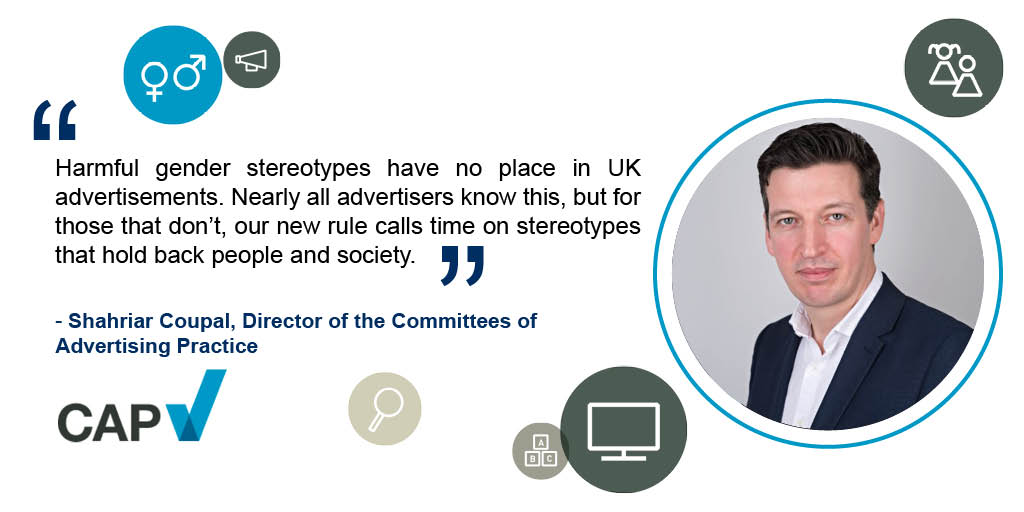New UK Rule Bans Advertisers From Using Gender Stereotypes

- Funny
- Offensive
Don’t Mock Dad For Vacuuming
December 18th, 2018 – Advertisers in the UK will have to go back to the drawing board if they were going to rely on gender stereotypes to sell their products. The Committee of Advertising Practice (CAP) made the official announcement last Friday that there would be a ban on “gender stereotypes that are likely to cause harm, or serious or widespread offense.”
While the new restrictions may likely be seen as a sweeping overreach, the watchdog group has made clear that they aren’t too limiting. Advertisers are still welcome to develop and target products for a specific gender.
They may also continue to use “glamorous, attractive, successful, aspirational or healthy people or lifestyles,” and “gender stereotypes as a means to challenge their negative effects.”
Getting into what is not allowed does, however, reveal a variety of scenes that will have to be erased from the conference room whiteboards. Companies will no longer be able to portray a man relaxing with his feet up while a woman cleans. They also won’t be able to show a person not accomplishing something merely because of their gender as well as someone not achieving romantic success because of their physical appearance.
The Advertising Standards Authority (ASA), a regulator that enforces the rules laid out by CAP, conducted focus group research in 2012 focusing on harm and offense in advertising. The group continued to analyze specific cases in 2015 and 2016 after gender stereotyping continued to be an issue of concern for participants.


The research, which included input from academics, stakeholders, as well as public opinion, laid out the effects of gender stereotyping beyond personal hurdles. The economic impact was reported to also be a driving factor behind the new rules. Not only are adults less likely to advance in their careers, but children are less likely to pursue certain paths because they may seem off limits.
ASA spokesman Craig Jones cites the field of engineering as one that has suffered because of gender stereotyping in advertising.
“People who represent engineers in this country said to us they believe one of the factors contributing to a labor shortage… is too few women are going into it,” he said. “They think the role of advertising presenting engineering as a male role is partly to blame.”
As CAP and the ASA have made their announcements on social media, several people have replied saying this is empty virtue signaling, an abuse of state power, and a curtailing of freedom of expression.
Ella Smillie, Project Lead & Regulatory Policy Executive for CAP, recognizes that advertising is only one piece in a large puzzle but maintains that it needs to be held accountable in order for all people to succeed.
“Making assumptions about how people should look and behave might negatively restrict how they see themselves and how others see them, and limit choices they make in life,” she said. “While we recognise that advertising is only one factor in the wider context of the reinforcement of gender stereotypes, we’re keen that we play our role to address ads that have the potential to harm.”
The new ruling will go into effect in June 2019 and will apply to ads on TV, radio, websites, and print.
